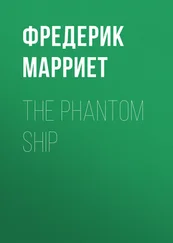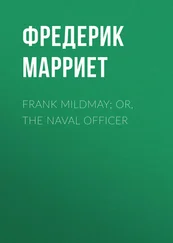Фредерик Марриет - The Pirate
Здесь есть возможность читать онлайн «Фредерик Марриет - The Pirate» — ознакомительный отрывок электронной книги совершенно бесплатно, а после прочтения отрывка купить полную версию. В некоторых случаях можно слушать аудио, скачать через торрент в формате fb2 и присутствует краткое содержание. Жанр: foreign_prose, literature_19, foreign_antique, на английском языке. Описание произведения, (предисловие) а так же отзывы посетителей доступны на портале библиотеки ЛибКат.
- Название:The Pirate
- Автор:
- Жанр:
- Год:неизвестен
- ISBN:нет данных
- Рейтинг книги:3 / 5. Голосов: 1
-
Избранное:Добавить в избранное
- Отзывы:
-
Ваша оценка:
- 60
- 1
- 2
- 3
- 4
- 5
The Pirate: краткое содержание, описание и аннотация
Предлагаем к чтению аннотацию, описание, краткое содержание или предисловие (зависит от того, что написал сам автор книги «The Pirate»). Если вы не нашли необходимую информацию о книге — напишите в комментариях, мы постараемся отыскать её.
The Pirate — читать онлайн ознакомительный отрывок
Ниже представлен текст книги, разбитый по страницам. Система сохранения места последней прочитанной страницы, позволяет с удобством читать онлайн бесплатно книгу «The Pirate», без необходимости каждый раз заново искать на чём Вы остановились. Поставьте закладку, и сможете в любой момент перейти на страницу, на которой закончили чтение.
Интервал:
Закладка:
“Crowded boats in such a sea as this!” replied Captain Ingram, shaking his head mournfully.
“Are bad enough, I grant; but better than the sea itself. All we can do now is to try and keep the men sober, and if we can do so it will be better than to fatigue them uselessly; they’ll want all their strength before they put foot again upon dry land—if ever they are so fortunate. Shall I speak to them?”
“Do, Oswald,” replied the captain; “for myself I care little, God knows; but my wife—my children!”
“My lads,” said Oswald, going forward to the men, who had waited in moody silence the result of the conference—“as for pumping any longer it would be only wearing out your strength for no good. We must now look to our boats; and a good boat is better than a bad ship. Still this gale and cross-running sea are rather too much for boats at present; we had therefore better stick to the ship as long as we can. Let us set to with a will and get the boats ready, with provisions, water, and what may be needful, and then we must trust to God’s mercy and our own endeavours.”
“No boat can stand this sea,” observed one of the men. “I’m of opinion, as it’s to be a short life, it may as well be a merry one. What d’ye say, my lads?” continued he, appealing to the men.
Several of the crew were of the same opinion: but Oswald, stepping forward, seized one of the axes which lay at the main-bits, and going up to the seaman who had spoken, looked him steadfastly in the face:—
“Williams,” said the mate, “a short life it may be to all of us, but not a merry one; the meaning of which I understand very well. Sorry I shall be to have your blood, or that of others, on my hands; but as sure as there’s a heaven, I’ll cleave to the shoulder the first man who attempts to break into the spirit-room. You know I never joke. Shame upon you! Do you call yourselves men, when, for the sake of a little liquor now, you would lose your only chance of getting drunk every day as soon as we get on shore again? There’s a time for all things; and I’ve a notion this is a time to be sober.”
As most of the crew sided with Oswald, the weaker party were obliged to submit, and the preparations were commenced. The two boats on the booms were found to be in good condition. One party was employed cutting away the bulwarks, that the boats might be launched over the side, as there were no means of hoisting them out. The well was again sounded. Nine feet of water in the hold, and the ship evidently settling fast. Two hours had now passed, and the gale was not so violent; the sea, also, which at the change of wind had been cross, appeared to have recovered its regular run. All was ready; the sailors, once at work again, had, in some measure, recovered their spirits, and were buoyed up with fresh hopes at the slight change in their favour from the decrease of the wind. The two boats were quite large enough to contain the whole of the crew and passengers; but, as the sailors said among themselves (proving the kindness of their hearts), “What was to become of those two poor babbies, in an open boat for days and nights, perhaps?” Captain Ingram had gone down to Mrs Templemore, to impart to her their melancholy prospects; and the mother’s heart, as well as the mother’s voice, echoed the words of the seamen, “What will become of my poor babes?”
It was not till nearly six o’clock in the evening that all was ready: the ship was slowly brought to the wind again, and the boats launched over the side. By this time the gale was much abated; but the vessel was full of water, and was expected soon to go down.
There is no time in which coolness and determination are more required than in a situation like the one which we have attempted to describe. It is impossible to know the precise moment at which a water-logged vessel, in a heavy sea, may go down: and its occupants are in a state of mental fever, with the idea of their remaining in her so late that she will suddenly submerge, and leave them to struggle in the waves. This feeling actuated many of the crew of the Circassian , and they had already retreated to the boats. All was arranged; Oswald had charge of one boat, and it was agreed that the larger should receive Mrs Templemore and her children, under the protection of Captain Ingram. The number appointed to Oswald’s boat being completed, he shoved off, to make room for the other, and laid-to to leeward, waiting to keep company. Mrs Templemore came up with Captain Ingram, and was assisted by him into the boat. The nurse, with one child, was at last placed by her side; Coco was leading Judy, the other nurse, with the remaining infant in her arms, and Captain Ingram, who had been obliged to go into the boat with the first child, was about to return to assist Judy with the other, when the ship gave a heavy pitch, and her forecastle was buried in the wave: at the same time the gunwale of the boat was stove by coming in contact with the side of the vessel. “She’s down, by God!” exclaimed the alarmed seamen in the boat; shoving off to escape from the vortex.
Captain Ingram, who was standing on the boat’s thwarts to assist Judy, was thrown back into the bottom of the boat; and, before he could extricate himself, the boat was separated from the ship, and had drifted to leeward.
“My child!” screamed the mother: “my child!”
“Pull to again, my lads!” cried Captain Ingram, seizing the tiller.
The men, who had been alarmed at the idea that the ship was going down, now that they saw that she was still afloat, got out the oars and attempted to regain her, but in vain—they could not make head against the sea and wind. Further and further did they drift to leeward, notwithstanding their exertions; while the frantic mother extended her arms, imploring and entreating. Captain Ingram, who had stimulated the sailors to the utmost, perceived that further attempts were useless.
“My child! my child!” screamed Mrs Templemore, standing up, and holding out her arms towards the vessel. At a sign from the captain, the head of the boat was veered round. The bereaved mother knew that all hope was gone, and she fell down in a state of insensibility.
Chapter Five.
The Old Maid
One morning, shortly after the disasters which we have described, Mr Witherington descended to his breakfast-room somewhat earlier than usual, and found his green morocco easy-chair already tenanted by no less a personage than William the footman, who, with his feet on the fender, was so attentively reading the newspaper that he did not hear his master’s entrance. “By my ancestor, who fought on his stumps! but I hope you are quite comfortable, Mr William; nay, I beg I may not disturb you, sir.”
William, although as impudent as most of his fraternity, was a little taken aback. “I beg your pardon, sir, but Mr Jonathan had not time to look over the paper.”
“Nor is it required that he should, that I know of, sir.”
“Mr Jonathan says, sir, that it is always right to look over the deaths , that news of that kind may not shock you.”
“Very considerate, indeed.”
“And there is a story there, sir, about a shipwreck.”
“A shipwreck! where, William? God bless me! where is it?”
“I am afraid it is the same ship you are so anxious about, sir,—the—I forget the name, sir.”
Mr Witherington took the newspaper, and his eye soon caught the paragraph in which the rescue of the two negroes and child from the wreck of the Circassian was fully detailed.
“It is indeed!” exclaimed Mr Witherington. “My poor Cecilia in an open boat! one of the boats was seen to go down,—perhaps she’s dead—merciful God! one boy saved. Mercy on me! where’s Jonathan?”
“Here, sir,” replied Jonathan, very solemnly, who had just brought in the eggs, and now stood erect as a mute behind his master’s chair, for it was a case of danger, if not of death.
Читать дальшеИнтервал:
Закладка:
Похожие книги на «The Pirate»
Представляем Вашему вниманию похожие книги на «The Pirate» списком для выбора. Мы отобрали схожую по названию и смыслу литературу в надежде предоставить читателям больше вариантов отыскать новые, интересные, ещё непрочитанные произведения.
Обсуждение, отзывы о книге «The Pirate» и просто собственные мнения читателей. Оставьте ваши комментарии, напишите, что Вы думаете о произведении, его смысле или главных героях. Укажите что конкретно понравилось, а что нет, и почему Вы так считаете.












